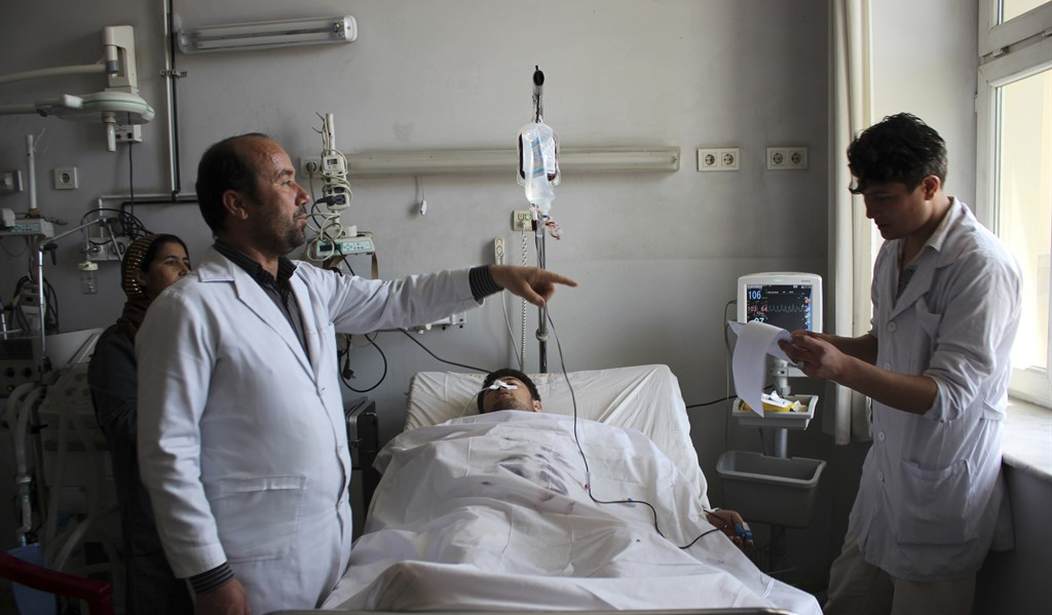This is something of a sensitive topic and though we’ve tackled similar ones before, these stories always give me pause. At issue is a frankly heart wrenching story in the Washington Post from last week by Doctor Yvette Youssef. When she was younger, just entering medical school herself, her mother fell terribly ill, prompting a painful discussion among the family. What followed was a brutal journey through the medical system where it became clear that her mother was dying, but the medical team at the hospital never came out and told the family that until her life was just about ended.
Sometimes it feels like the great unspoken secret between doctors and nurses. The words that we dare not utter to patients and families. Perhaps it is our hope that we’re wrong. Perhaps we dread providing unwanted news. Perhaps we don’t want to face reality or extinguish our patients’ hope.
As a daughter, I felt that sense of sadness and dread, waiting to hear the news that would not be told. It was September 1989, and I was only 20 years old and just beginning my first year of medical school. It was less than a week from my first exam when my mother developed intractable nausea and vomiting. After several days of suffering at home, she decided it was time to go to the hospital.
I distinctly remember her sitting at the dining room table and saying goodbye to each of her seven children, starting with the youngest daughter, who had just started kindergarten, and finishing with me, the eldest, who had just started medical school.
Dr. Youssef was initially in denial, even growing angry with her mother and insisting that with a bit of treatment she would be on the mend and back home again. Her doctors actually encouraged that thinking for quite some time, but when it became obvious to everyone that her mother had known the truth from the beginning she was left with many questions which haunted her for years. What if they had been more honest? Would they have put her mother through all those additional, painful procedures just to wring out a few more weeks of life, all of which was spent essentially in hospice conditions?
This story reminded me of some of the previous research I’d done on the subject. One of the most important essays I’ve ever found on the topic dates back to 2011 and was written by Dr. Ken Murray. It’s called “How Doctors Die” and I’ve referenced it here in the past. His story begins with the tale of an orthopedist who he only refers to as “Charlie” who was diagnosed with pancreatic cancer. The story of how Charlie’s life ended was far, far different from what happened to Dr. Youssef’s mother.
Years ago, Charlie, a highly respected orthopedist and a mentor of mine, found a lump in his stomach. He had a surgeon explore the area, and the diagnosis was pancreatic cancer. This surgeon was one of the best in the country. He had even invented a new procedure for this exact cancer that could triple a patient’s five-year-survival odds–from 5 percent to 15 percent–albeit with a poor quality of life. Charlie was uninterested. He went home the next day, closed his practice, and never set foot in a hospital again. He focused on spending time with family and feeling as good as possible. Several months later, he died at home. He got no chemotherapy, radiation, or surgical treatment. Medicare didn’t spend much on him.
As Murray points out, Charlie’s story isn’t unusual at all… at least among doctors. He knew he was dying and his colleagues who were caring for him knew it too. He could have undergone all of the chemo and radiation and all the rest and possibly squeezed out a few more months, but instead he had his colleague load him up with painkillers and went home to get as much out of his remaining days as he could.
But for most of us who are not inside the profession, that’s not an option which is discussed unless you demand it. Doctors immediately turn to the long, painful and frequently bankrupting procedures described above, allowing the family to think that just maybe their loved one will pull through in the end, even if the medical team knows that it would literally take a miracle.
And if a miracle is coming, shouldn’t they allow God to handle the heavy lifting in His own time?
This doesn’t sound like the sort of thing that could be easily addressed through government regulation even if you wanted to go that route. Perhaps, as Dr. Youssef suggests, the doctors are afraid of being sued. Or maybe they really don’t like giving bad news. But no matter the reason, it’s more of a cruelty than a kindness to the families to not at least tell them the truth and prepare them for all possible scenarios. I’m guessing that the best method to fix this is through pressure coming from the consumer end of the equation. Patients need to be more direct with their doctors, demand blunt answers no matter how painful they may be and similarly call for an honest range of options. Sometimes being at home with powerful painkillers is better than living in a hospital ward getting radiation for weeks on end if it’s not going to do more than allow you to cling on for a few more days. If that’s what you want to do, then so be it. But you should at least have all of the information at hand to make that choice.








Join the conversation as a VIP Member